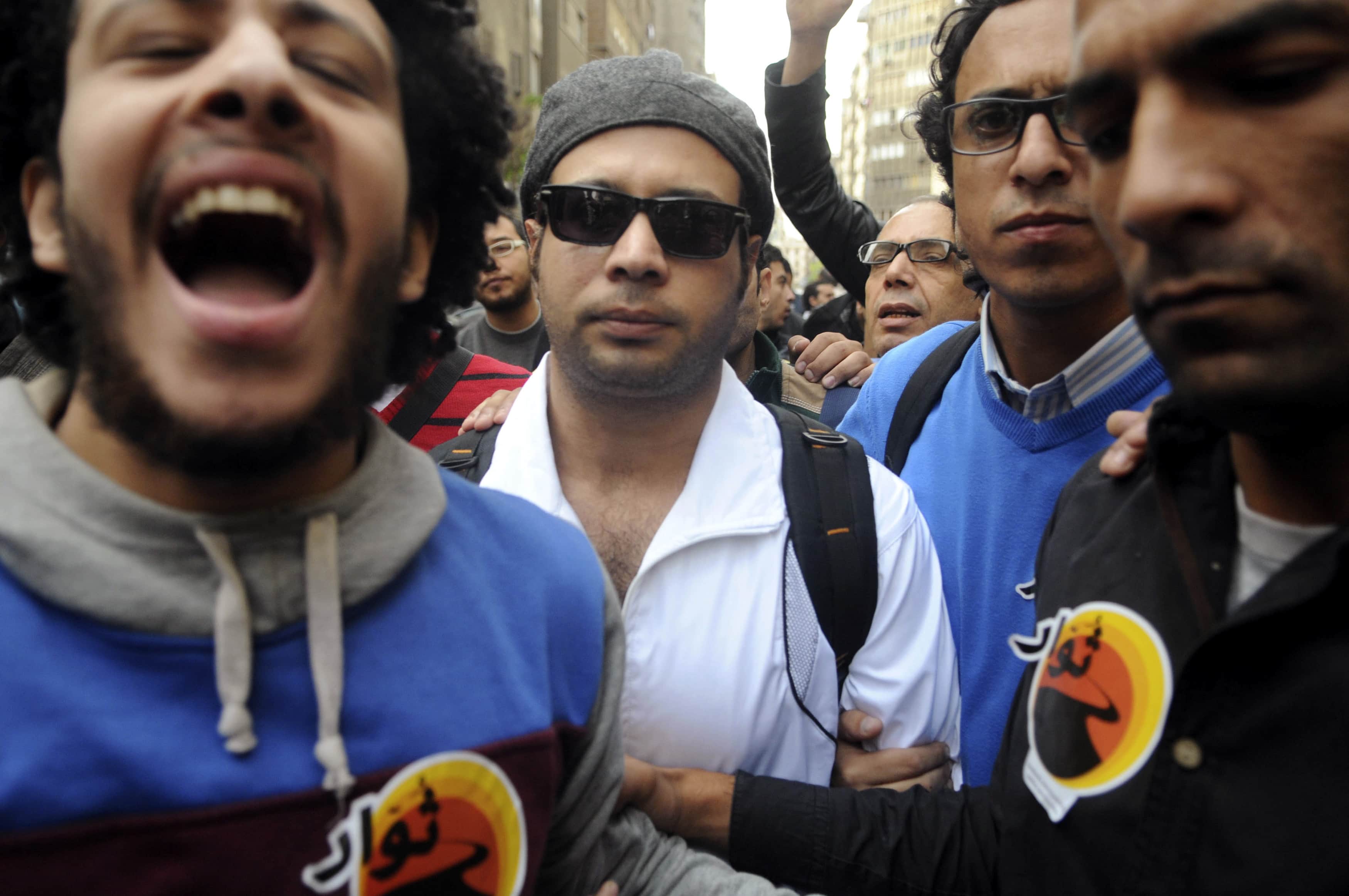Arrest warrants have recently been issued against a number of prominent political activists including Alaa Abdel Fattah, a well-known blogger and Ahmed Maher, founder of the 6 April Youth Movement, for participating in protests against the new protest law.
The Arabic Network for Human Rights Information (ANHRI) condemns the Egyptian authorities’ use of the public prosecution as a tool to harass political activists and dissidents. The authorities have been issuing arrest warrants against those speaking out and summoning them into custody against the backdrop of their political activities.
In the past few days, arrest warrants were issued against a number of prominent political activists including Alaa Abdel Fattah, a well-known blogger, Ahmed Maher, founder of the 6 April Youth Movement, Ahmed Douma, Mohamed Adel, a leading figure in the 6 April Youth Movement, along with Haitham Muhamadein of the Revolutionary Socialists Movement, and nine other activists in light of their participation in demonstrations against the protest law and military trials for civilians as well as in honour of the second anniversary of the Mohamed Mahmoud incidents.
Activist Ahmed Douma was arrested on 3 December 2013 at the hands of police officers from the Basateen police station following a decision by the public prosecution to arrest Douma on charges of protesting without notifying the authorities, participating in violent acts in front of the Abdeen Court, where activist Ahmed Maher had previously turned himself in, and for assaulting public servants. Douma was sent to the prosecution in central Cairo and ordered to remain in custody for four days pending investigations.
As for the 6 April Youth Movement founder, Ahmed Maher, he was jailed for 4 days as of 2 December 2013 by the public prosecution pending investigations on charge of breaching the protest law. Maher turned himself in after the arrest warrant was issued but he was beaten by security forces outside Abdeen Court.
Meanwhile, on 1 December, Kasr Al-Nile Misdemeanor Court renewed the detention of Alaa Abdel Fattah for 15 days pending investigations over the accusation of protesting against the backdrop of the “No to Military Trials for Civilians” movement’s demonstration organized on 26 November outside the Shura Council. The protest was held in objection to the military trials in the new constitution. Security forces arrested the activist from his home on 28 November.
In a similar fashion to the cases of the activists mentioned above, Haitham Muhamadein was arrested following the issuance of a warrant by the Central Cairo Prosecution along with nine other activists after being accused of inciting people to protest outside the Shura Council on 26 November. The prosecution ordered the arrest of Mohamed Adel as well over charges of protesting without a warrant and inciting violence.
“Despite going through four successive governments since 2011 until the present, the public prosecution is still used as a security tool to harass activists and opinion makers,” said ANHRI. “This pattern illustrates the dependence of the judiciary on the executive authority in Egypt which has led to impunity for most perpetrators of crimes against the Egyptian people, particularly the officers accused of killing demonstrators.”
ANHRI calls upon the Egyptian authorities to suspend these false trials against the activists who are simply exercising their right to protest. It also calls for all charges against them to be dropped.



